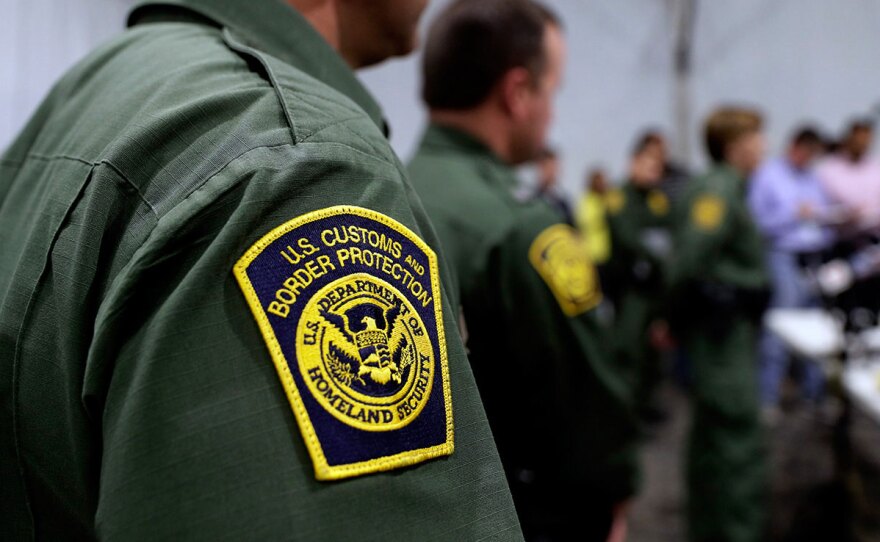A man in Border Patrol custody was held for three weeks while his family and lawyers had no idea where he was or if he was even alive.
The 39-year-old man had been held at the Chula Vista Border Patrol station without being able to call his family or lawyer.
When the man first entered the US, he was charged with illegal entry, which was ultimately dismissed by prosecutors at the beginning of October. (KPBS is withholding his name because of the threats he and his family have received in Mexico).
It was after that dismissal that his ordeal in Border Patrol custody began. The man was held in civil custody at the Chula Vista Border Patrol station, unable to reach out to his family.
“I never thought it was going to be that long. I was telling them please, let me make a call, everyone is going to be worried, because two weeks passed by already,” he told KPBS at the Otay Mesa Detention Center, where he’s now being held.
He had come to the United States with his parents from Mexico when he was 7 and took a voluntary departure from the US nine years ago.
He started a family in Jalisco, but when he began to be threatened by cartel members, he crossed back into the US to claim asylum.
While he was at the Border Patrol station, his family in Mexico and the U.S. had no idea where he was, whether he had been deported to Mexico, or if he was even alive.
Finally, after almost three weeks in custody, a guard let him make a short phone call to his sister.
“She started crying because she was like, 'Where are you? Are you ok? It’s been so long, we never heard from you,'” he said.
While in custody, he told KPBS that he had to sleep in a room with 60 other people, and was served rotten food.
In a statement, Customs and Border Protection said that the agency is under “no obligation to notify family or counsel,” when someone is in their custody.
Border Patrol stations are meant for only very short stays, but over the past year, migrants have often faced extended stays in the stations as CBP claims it lacks the capacity to process asylum-seekers quickly enough.
The man’s lawyer, Dorien Ediger-Seto works with the National Immigrant Justice Center, which provides pro-bono assistance to immigrants. She had to file a motion in federal court just to locate her own client.
“It’s so fundamentally un-American, to have a system where people are disappeared and held incommunicado for an indeterminate amount of time, without even being able to have that five-minute phone call to your family member to let them know where you are,” Ediger-Seto told KPBS.
Ediger-Seto’s client said other people in custody at the Border Patrol station told him they had been held there for even longer than three weeks.
“The first days were really long, but just after the first week, it went really fast," the asylum-seeker said. "One day would pass by then another day. And then another week. I couldn’t do nothing. They wouldn’t let you do nothing.”
Editor's Note: Customs and Border Protection had told KPBS prior to publication that the asylum-seeker, like all individuals in its custody, had the opportunity to contact their consulate. The asylum-seeker declined this opportunity. The asylum-seekers lawyer, Dorien Ediger-Seto, said, "Many asylum seekers are fleeing the same governments that their consular officers represent, so it should be no surprise that while some people in CBP custody are comfortable communicating with their consulates, many others feel unsafe doing so."









